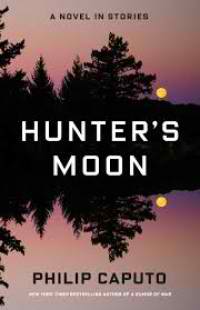Dahlia Black by Keith Thomas
 Monday, August 12, 2019 at 9:08AM
Monday, August 12, 2019 at 9:08AM 
Published by Atria/Leopoldo & Co. on August 13, 2019
Dahlia Black is written as the history of a world-changing event. The event begins when an astronomer named Dahlia Mitchell discovers a signal coming from space that contains a Pulse Code, which is like a computer virus except it alters the computers we refer to as brains. About 30% of humanity experiences an Elevation and those who are capable of handling it will experience a transitional event called the Finality. Fans of the old Stargate television series might be reminded of Daniel Jackson’s ascension to a higher place of existence.
When the Finality comes, civilization goes. The world’s population declines by five billion people in five years, leaving the survivors to rebuild. Some choose to rebuild while others decide to go live in the woods. Nobody has much interest in rebuilding the dysfunctional government in Washington D.C. Alabama and Texas seize the opportunity to split from the not-so-United States, but the postapocalyptic aspects of the novel are part of the background. This isn’t another story of moronic survivalists killing each other.
The story is told through FBI interview transcripts, journal entries, transcripts of White House meetings, and the author’s notes and interviews. We learn that Dahlia is not the first astronomer to detect such a signal. An obscure government agency and a stealthy group known as the Twelve became aware of what such signals can do and tried to exploit the information while keeping a lid on it. Dahlia isn’t the kind of person who keeps a lid on the truth.
Of course, governments that decide to tell their citizens an uncomfortable truth often put a spin on it. Keith Thomas images the American administration hiring marketing managers to sell the Elevation to the public, ostensibly without causing mass panic. True to her roots, the marketing guru recommends lying. The government describes the Elevation as something like the Rapture, although none of the Left Behind really understand the nature of the Finality. Whether it is right or wrong to instill false hope is left to the reader to decide.
And since it has become the American way to hate anything that people don’t understand, the story imagines that some Elevated are committed to institutions or placed in concentration camps. In the worst case, a small town mob sets a camp of Elevated people on fire. The message is that people fear change, particularly when they aren’t intellectually equipped to accept its inevitability.
While Dahlia Black tells an interesting story, its epistolary style creates a detachment that robs the story of its power. The ultimate lesson — find your own meaning in life, don’t expect a miracle to come along that gives it meaning — has merit, but the message is presented as if it were something from a self–help book. The last chapter reveals the purpose of the Pulse and the Finality, and while it is meant to be poignant, it left me unmoved.
In the end, the novel is more of a thought experiment than the emotional gut punch it could have been. I’m not sure whether that is good or bad — at least I did not feel emotionally manipulated by the story, but when I end a story with a shrug, feeling no attachment to any character and lacking an emotional connection to the plot, I’m generally disappointed. In the case of Dahlia Black, my disappointment was slight, given my interest in the story as it unfolded, but I cannot give the book an enthusiastic recommendation.
RECOMMENDED WITH RESERVATIONS



